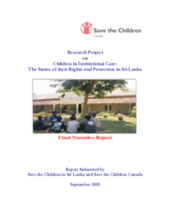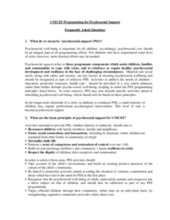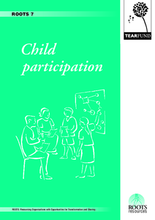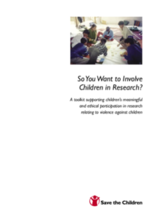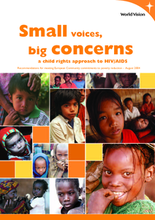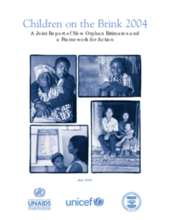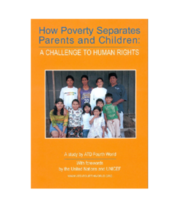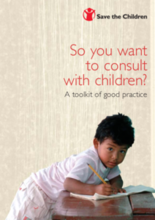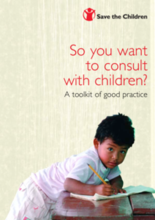Displaying 341 - 350 of 377
A situation analysis of children in institutional care that includes policy implications and key recommendations.
Helpful resource for defining key terms, issues, and practices in psychosocial support. Contains a short list of recommended tools for support and monitoring of psychosocial support interventions.
A faith-based approach to promoting and integrating child participation into communities. Includes guidelines for the design, implementation and evaluation of programs, as well as specific activity recommendations and case studies.
A toolkit offering operational guidance and techniques for eliciting child participation in primary and secondary research. Includes in-depth consideration of related ethical issues.
Outlines how a child rights approach can be used to strengthen policy implementation and provides recommendations as to how the EU institutions can move forward in implementing commitments to OVC.
This report examines the current state of orphans and vulnerable children. It provides a regional overview, highlights trends, urges support for alternatives to institutional care and child participation, and presents a framework of protection and care of orphans and vulnerable children. Includes comprehensive data appendices.
An informal evaluation of an NGO residential institution in Zimbabwe, based on the opinions of the child residents. Includes recommendations for the improvement of residential care.
An executive summary of lessons learned on preventing family separation in poverty stricken communities. Brief case studies from Guatemala, Haiti, Philippines, United States and Burkina Faso.
A toolkit of good practices for involving children in consultation and policy processes. Includes an extensive guide to additional resources.
A comprehensive guide to organizing consultations with groups of children or young people, and the role of adults in creating a safe and enabling environment for meaningful child participation.

